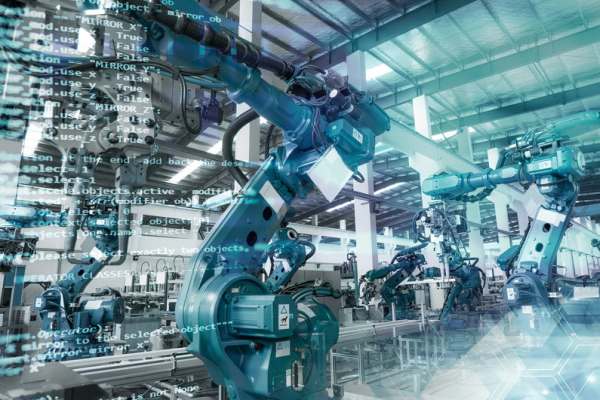Published on the 19/08/2020 | Written by Heather Wright

Industry mash-ups, new training…
Kiwi and Australian organisations are taking the concept of collaboration to heart when it comes to Industry 4.0, with a slew of new initiatives designed to help drive manufacturing as a force for economic revival unveiled in recent weeks.
In New Zealand, the government Industry 4.0 Demonstration Network got a nudge forward with news that engineering and consulting firm Beca and the Employers and Manufacturers Association have signed on as official partners for the Callaghan Innovation lead initiative.
It’s the second big collaboration project announced this month, with Ara Institute of Canterbury launching a formal digital development collaboration and research partnership with global brands Bosch and Jade Software, and Regensburg University.
“If people can experience these new technologies in action first-hand, they can start to imagine what they could achieve in their own context.”
The moves come as countries around the globe look towards the manufacturing sector, and Industry 4.0, to help transform the economies, post-Covid.
The Industry 4.0 Demonstration Network received government funding to the tune of $5.04 million over four years in recognition of the serious need to lift Industry 4.0 uptake in New Zealand manufacturing.
It’s designed to bring the tools to life for manufacturers in ‘relatable and practical ways’, and in real-world settings, serving up real world demonstrations of how technologies including robotics, automation, data analytics, mixed reality and AI can drive productivity and enable new business models.
Nathan Stantiall, Callaghan Innovation group manager, programmes and project lead, says Kiwi manufacturers are good at highly customised manufacturing, often in high value niches. “But Industry 4.0 is enabling our competitors to perform this kind of manufacturing at mass production cost – and they stand to beat us at our own game.”
While the benefits of Industry 4.0 – including improved productivity and efficiency, flexibility, easier compliance and reduced costs – might be widely recognised, getting manufacturers to embrace the move has proven more problematic. Brett O’Riley, EMA chief executive, recently issued a stark warning to the EMA’s manufacturing members, saying without a commitment to technology and going digital, many won’t be competitive in the long term.
Sue Bradley, GM Industrial Digital for Beca, says interacting with the tools is an important first step in adoption. “If people can experience these new technologies in action first-hand, discuss and observe the benefits and practical case studies, they can start to imagine what they could achieve in their own context.”
The Demonstration network includes a mobile Industry 4.0 showcase, courtesy of Beca, along with a network of site visits and factory tours, delivered by the EMA.
Meanwhile, Ara’s BARJ joint digital development is bringing together the university network with big business, with a focus on IoT and a digital assistant capable of changing speech to text and translating that into a hardware’s language.
Australia, too, is pinning hopes on Industry 4.0, with a new diploma and more work by RMIT to push industry transformation.
RMIT’s latest push comes in the form of a new partnership with Europe’s leading 3D printing institute, the Fraunhofer Institute for Material and Beam Technology IWS, which RMIT deputy vice-chancellor of science, engineering and health and vice president for digital innovation, Aleksandar Subic says gives Australian companies access to some of the world’s best experts and technologies critical for Industry 4.0 transformation.
The deal is designed to provide closer contact with the Australian market where there is much latent potential for additive manufacturing, while fostering student exchange and joint PhD supervision.
“Germany is at the core of global I4.0 innovation, but Australia is developing rapidly through a range of national programs and global partnerships such as this one,” Subic says.
“This partnership will serve as a conduit between Australia and Germany to tap into that rich vein, which will support Australia’s manufacturing transformation at a critical time, while also training the next generation of local additive manufacturing experts.”
The deal follows a recent initiative adding further business education links with RMIT teaming up with Siemens and Festo Didactic to establish an Industrial Digital Innovation Hub for Australasia.
Meanwhile NSW Government this month launched a new diploma in advanced manufacturing as part of its Covid-19 recovery efforts. Advanced manufacturing is a key component in the government’s recovery plans.
The course qualifies graduates in disciplines including networking, big data, cloud computing and digital control systems.
Minister for Jobs Stuart Ayres says: “Embracing advanced technologies will be vital to ongoing profitability and competitive advantage but companies need a comprehensive strategy to manage equipment, processes, supply chain, sales and – most importantly – their workforce.”
A pilot course by SkillsLab is underway in the Hunter Region, with a second intake scheduled for September.



























